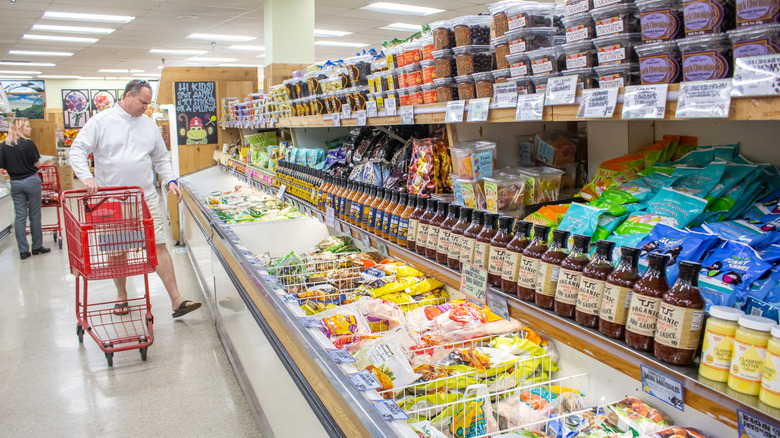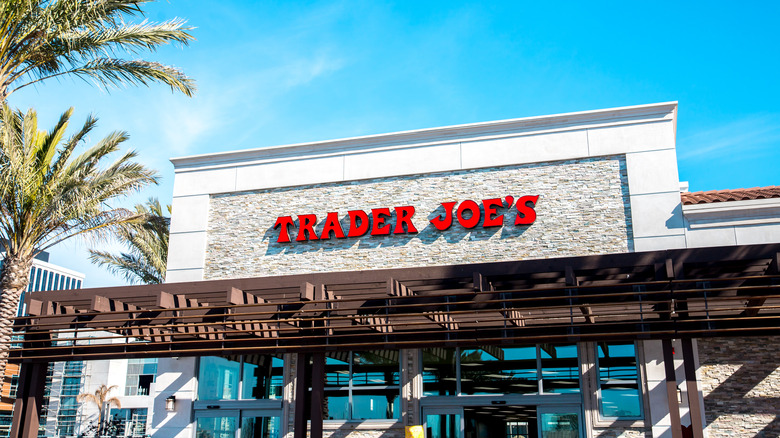The Convenience Store That Led To Trader Joe's
Trader Joe's is a real rarity in the supermarket industry. In a world of corporate grocery chains all selling roughly the same products or high-end Whole Foods clones, it's one of the only places to shop for food that has a real, unique identity. Its playful attitude, vague island theme, and an ever-rotating assortment of seasonal store-brand products make it a true experience. That experience has also attracted legions of die-hard fans that stick around despite its penchant for discontinuing beloved items and driven a countrywide expansion that Reader's Digest says now stands at over 500 locations in 42 states. Given its standout nature, it might be a surprise to learn Trader Joe's was born from another chain store that was considered quite generic.
Joe Coulombe — and yes, there was an actual guy named Joe — opened his first Trader Joe's location in Pasadena, California, in 1967. He had been working for a pharmacy company named Rexall, which wanted to open a chain of convenience stores to compete with the dominant 7-Eleven. Coulombe ran one of Rexall's stores, but they didn't do so hot, and the company decided to jump ship. So Coulombe decided to go into the grocery business himself and bought the shop he was managing, a convenience store named Pronto Markets.
Trader Joe's was the successor to Pronto Markets
The breakthrough that led to Trader Joe's unique status also came from one of the most generic products: eggs. Coulombe's Pronto Markets was struggling to compete with larger rivals and unable to stand out, but that changed when an egg farmer offered Joe extra large eggs that other stores were not buying at a discount price. According to CNBC, the cheap eggs were a hit, and Coulombe realized he could set his stores apart by finding unique discount items. The profits and knowledge from Pronto Markets are what helped Coulombe open up the first Trader Joe's, the store that fully embraced his new strategy.
From there, everything we love about Trader Joe's started to take shape. He targeted a growing number of adventurous, well-traveled shoppers, and CNN says he co-opted the tiki trend of the time to emphasize his exotic products. Trader Joe's jumped on board the California health food movement early by launching its first store-brand item, granola, and continued exploiting market loopholes to import French wine at discount prices. From there on out, the formula was set; the company continued to double down on popular store-brand products and even expanded that idea to the famous two-buck chuck and Trader Joe's beer, allowing them to stay focused on quality without charging high prices. Trader Joe's and Pronto Markets just go to show that sometimes even the most unremarkable places can spark the ideas that end up changing an industry.

